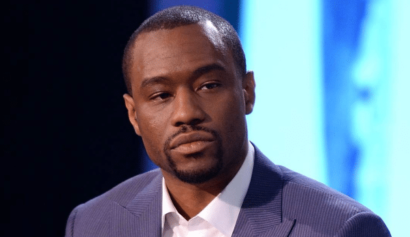As Israel and Hamas argue about who started the current conflict, Israel continues to bomb and kill Palestinians in the Gaza Strip—escalating the death toll past 100—and threatens even more death and destruction with the massing of ground troops near the border.
While the diplomatic efforts at a ceasefire have taken on an air of increasing urgency, the situation has become yet another nightmare for the 1.5 million Palestinians living in Gaza as they await Israeli bombs, as defenseless as goldfish in a bowl. This isn’t the first time they have tasted the wrath of the Israeli army—just four years ago an estimated 1,400 were killed by the Israelis.
Israel points to the bombs that Hamas has been directing at Israeli targets as the reason for its massive show of force, but as some observers point out, the residents of Gaza have felt imprisoned in Gaza for years and should be excused for occasionally protesting their condition.
“As Israel mobilizes 75,000 reservists, masses troops on the border in preparation for Operation Cast Lead Mark II, attempts to assassinate Hamas officials and indiscriminately bombs residential neighborhoods, Barack Obama pats Netanyahu on the shoulder, saying Israel has every right to defend itself,” writes Linda Heard in Gulf News. “Think about what he is saying. Israel, the mighty nuclear-armed Israel, supposedly protected by its Iron Dome, has the right to defend itself while the Palestinians clearly have no such rights. Why should they, when they do not have rights over their borders and airspace or the right to import materials to rebuild homes, schools and hospitals? Palestinians have no rights at all even when international law and UN Security Council Resolutions are on their side.”
The death toll in Gaza rises hourly, reaching 106 Palestinians earlier today—with an estimated one-fourth of them being children, according to the Hamas-run Health Ministry. The Israeli death toll still stands at three.
Traveling in Asia, President Obama is nudging Egypt President Mohamed Mursi to use his influence with Hamas. As a member of the Muslim Brotherhood, Mursi has been attacked by the U.S. right wing in the months leading up to the presidential election—but the U.S. is now eager to use his closeness to Hamas to bring about a ceasefire.
Speaking from Cairo, the leader of Hamas said Israel started the conflict so should be the one to end it, while Israel claims it is sending barrages of rockets into Gaza to stop the Palestinian rocket attacks, which for the first time may be able to reach the population centers of Jerusalem and Tel Aviv—putting 3.5 million people at risk, nearly half the Israeli population.
U.N. Secretary-General Ban Ki-moon has tried to insert himself into the peace process, meeting in Cairo with Egypt’s foreign minister in preparation for talks with Mursi on Tuesday. He also plans to meet Netanyahu in Jerusalem.
In outlining the possible motivations on both sides of the conflict, Heard wrote: “Those in the Palestinian camp believe Netanyahu is putting on a show to impress voters before upcoming elections and wishes to present Palestinians in a poor light prior to their bid for upgraded UN status. The Israeli bandwagon says Hamas is dancing to Iran’s tune, using Iran-made rockets capable of hitting Tel Aviv — and wants to test just how far Mursi’s pledges of solidarity can be stretched.”
Hanging over the conflict like a storm cloud is Israel’s panic over Palestine’s attempt to upgrade its UN status—a panic so extreme that it is considering “toppling” Palestinian leader Mahmoud Abbas if the Palestinian bid is approved by the U.N., according to a position paper by Israel’s foreign ministry that was obtained by the BBC.
Israel is clearly alarmed that the Palestinian measure to become an “observer” state would have a monumental effect on Israel’s position in the world. Palestine is currently considered an observer “entity,” but not an official state. To be upgraded to statehood would be a huge move because it would grant the Palestinians access to bodies like the International Criminal Court in The Hague, which would give it the right to file complaints against Israel. It would be the same status accorded to the Vatican.
The move is adamantly opposed by the United States and Israel, but is still expected to pass easily when put to a vote next week in the 193-nation U.N. General Assembly—a body composed mostly of post-colonial states historically sympathetic to the Palestinians. To further solidify their position, Palestinian diplomats are courting European countries to garner their votes.
Khaled Meshaal, exile leader of Hamas, said a truce was possible but the two sides don’t seem close to nudging as Hamas, in charge of the Gaza Strip since 2007, would not accept Israeli demands and wants Israel to halt its strikes first and lift its blockade of the enclave.
“Whoever started the war must end it,” he told a news conference in Cairo, adding that Netanyahu, who faces an election in January, had asked for a truce, an assertion a senior Israeli official described as untrue.
Meshaal said Netanyahu feared the domestic consequences of a “land war” of the kind Israel launched four years ago: “He can do it, but he knows that it will not be a picnic and that it could be his political death and cost him the elections.”
For Israel, Vice Prime Minister Moshe Yaalon has said that “if there is quiet in the south and no rockets and missiles are fired at Israel’s citizens, nor terrorist attacks engineered from the Gaza Strip, we will not attack.”
Although 84 percent of Israelis support the current Gaza assault, according to a poll by Israel’s Haaretz newspaper, only 30 percent want an invasion.


